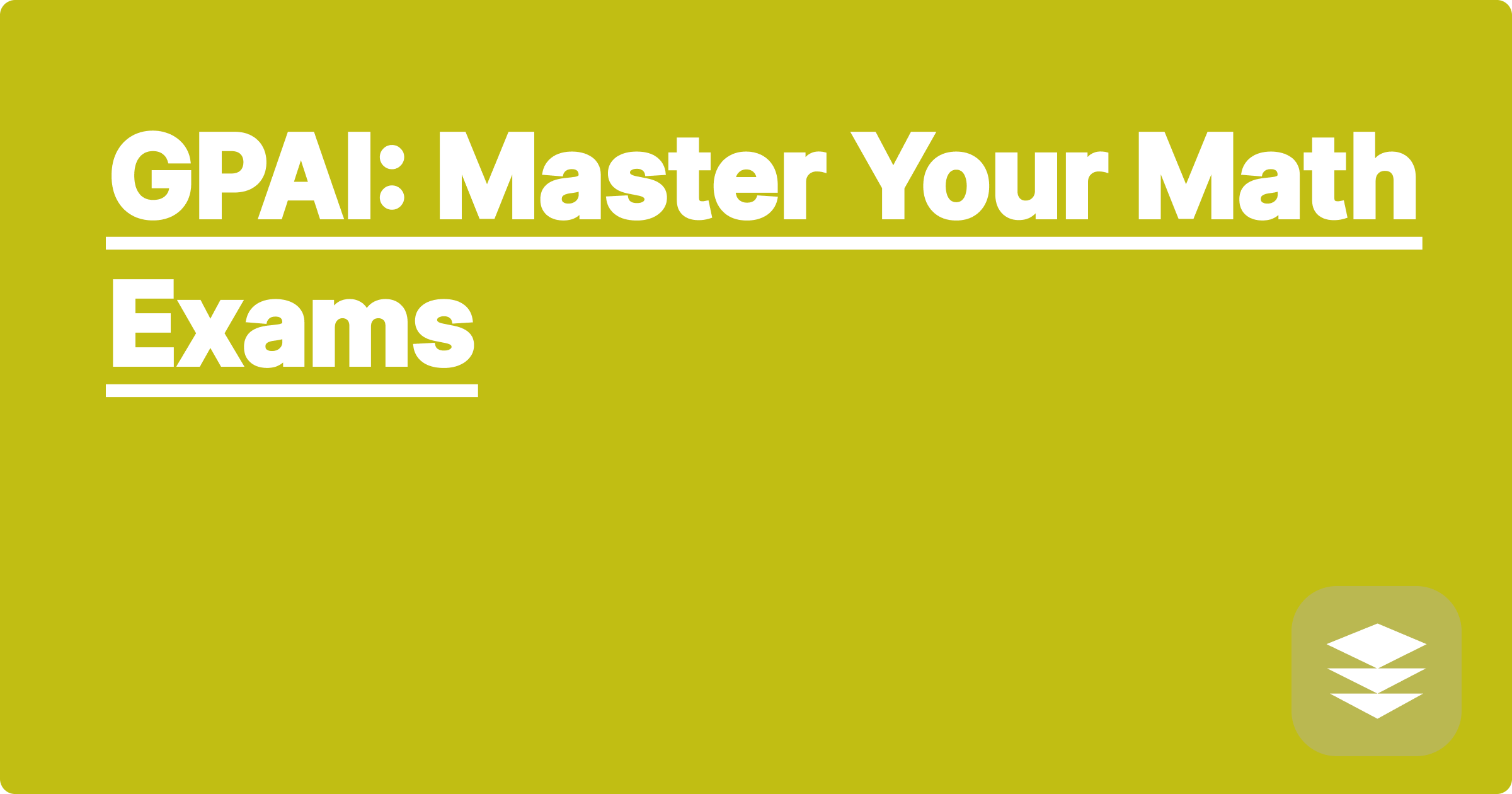
STEM fields often present a formidable challenge: mastering complex mathematical concepts. This challenge is amplified by the pressure of exams, which can be a source of significant stress for students. Fortunately, the rise of artificial intelligence offers new and exciting ways to approach learning and exam preparation. AI tools can provide personalized support, offer step-by-step solutions, and even generate practice problems, effectively transforming how students engage with mathematics.
For STEM students and researchers, the ability to effectively leverage AI in mathematical studies isn't just a convenient shortcut; it's a crucial skill for navigating the increasingly complex landscape of modern science and technology. AI proficiency can empower students to grasp difficult concepts more quickly, improve problem-solving abilities, and ultimately achieve greater academic success. This is particularly relevant in today's fast-paced academic environment, where staying ahead of the curve is essential. Mastering these tools can also translate into valuable skills for future research and professional careers.
This blog post will delve into how AI can be utilized to prepare for math exams, providing a practical guide for STEM students and researchers. We'll explore the challenges of traditional math learning and examine how AI can offer effective solutions. We'll also provide concrete examples and strategies to integrate these powerful tools into your study routine.
Traditional math education often relies on a one-size-fits-all approach. Students are presented with information in lectures and textbooks, then expected to apply this knowledge to problem sets. This method can be ineffective for many learners, as it fails to cater to individual learning styles and paces. Some students may struggle to grasp concepts during lectures, while others might find textbook explanations insufficient. Additionally, the pressure of exams can lead to anxiety and hinder performance, even for students who understand the material. The sheer volume of information and the variety of problem types can be overwhelming, making it difficult to know where to focus study efforts. This can lead to inefficient study habits and ultimately, suboptimal exam performance.
AI tools like ChatGPT, Claude, and Wolfram Alpha offer a personalized and interactive learning experience that addresses the shortcomings of traditional methods. These tools can provide on-demand explanations for specific concepts, breaking down complex ideas into manageable steps. They can also generate practice problems tailored to individual needs, allowing students to focus on areas where they require the most practice. Furthermore, these AI assistants can offer step-by-step solutions to problems, helping students understand the logic behind each step and identify areas where they might be making mistakes. This personalized feedback is invaluable for improving problem-solving skills and building confidence.
To effectively use these AI tools, begin by clearly defining the specific mathematical concept you want to learn or review. For example, if you're struggling with integration by parts, phrase your query to the AI as "Explain integration by parts with examples." Next, carefully examine the AI's response, paying attention to the explanations and examples provided. If anything is unclear, don't hesitate to ask follow-up questions. You can refine your understanding by asking the AI to provide additional examples or to explain a specific step in more detail. Once you feel comfortable with the concept, ask the AI to generate practice problems. Work through these problems, using the AI to check your answers and provide feedback on your solutions. This iterative process of learning, practicing, and receiving feedback is key to mastering mathematical concepts.
Suppose you're trying to understand the concept of eigenvalues and eigenvectors. You could ask ChatGPT, "Explain eigenvalues and eigenvectors and provide an example of how to calculate them for a 2x2 matrix." The AI would then provide an explanation of the concepts, along with a step-by-step example calculation. For instance, it might show you how to find the eigenvalues and eigenvectors of the matrix A = [[2, 1], [1, 2]]. It would walk you through the process of finding the characteristic equation, solving for the eigenvalues, and then calculating the corresponding eigenvectors. Wolfram Alpha can also be used to directly compute eigenvalues and eigenvectors by inputting the matrix. This allows you to verify your calculations and explore different examples quickly.
To maximize the benefits of AI in your STEM studies, incorporate these tools into your regular study routine. Use them to review lecture notes, clarify confusing concepts, and generate practice problems. Don't rely solely on the AI; actively engage with the material by working through problems and seeking clarification when needed. Experiment with different AI tools to find the ones that best suit your learning style. Remember that AI is a tool to enhance your learning, not replace it. Combine its power with traditional study methods like textbooks and lectures for a comprehensive learning experience.
In conclusion, AI offers a powerful new approach to mastering mathematics and excelling in STEM exams. By understanding how to effectively utilize these tools, students can gain a significant advantage in their studies. Embrace these technological advancements and integrate them into your learning journey to unlock your full academic potential. Start exploring these AI tools today and experience the transformative power of personalized learning. Don't hesitate to experiment and find the best way to integrate these tools into your individual study routine. The future of learning is here, and it's powered by AI.
GPAI: Data Analysis Simplified
GPAI: Your Differential Equations Tutor
GPAI: Perfect Your Lab Reports
GPAI: Programming Homework Ace
GPAI: Your Physics Exam Partner
GPAI: Streamline Your Research
GPAI: Conquer Computer Science